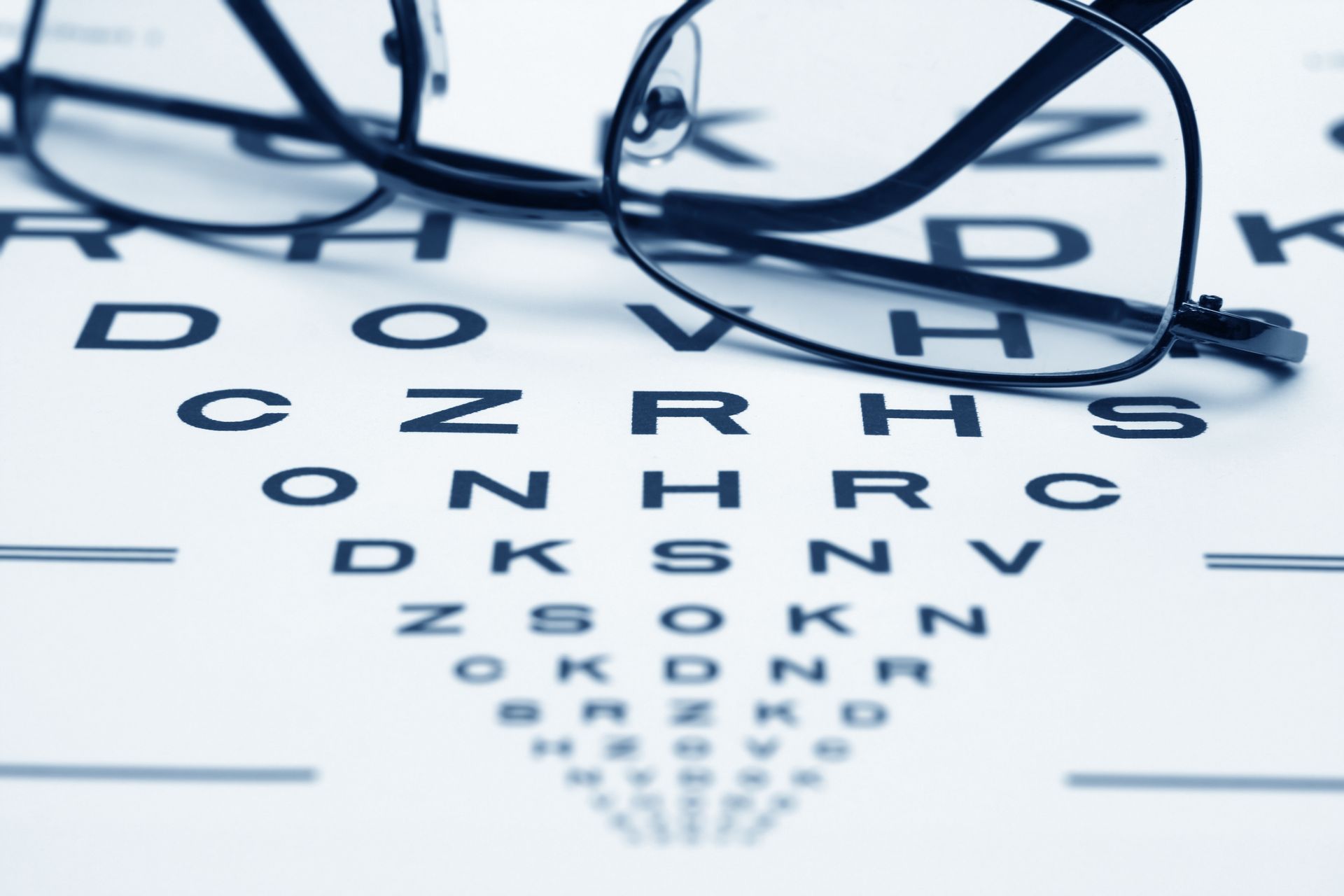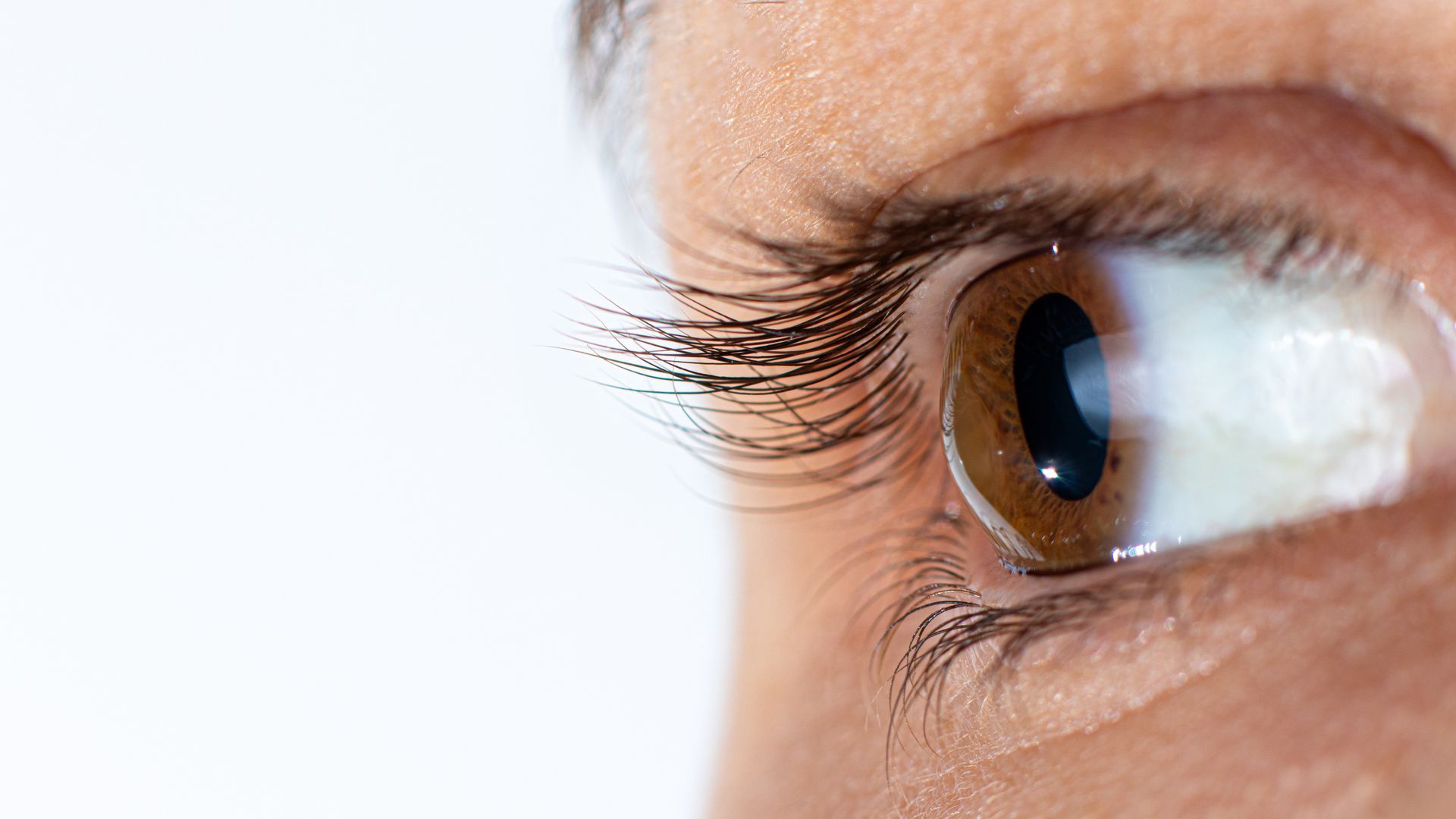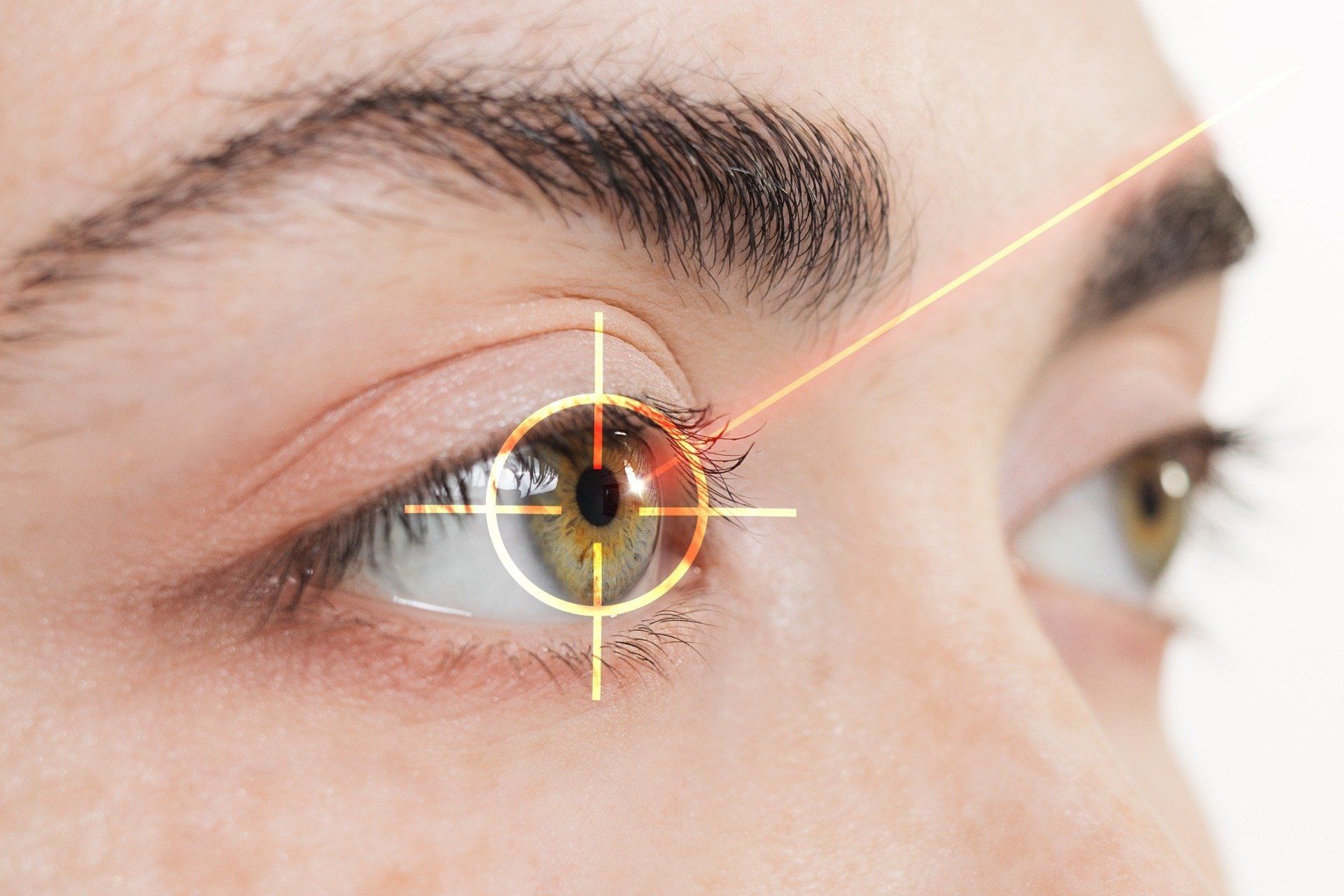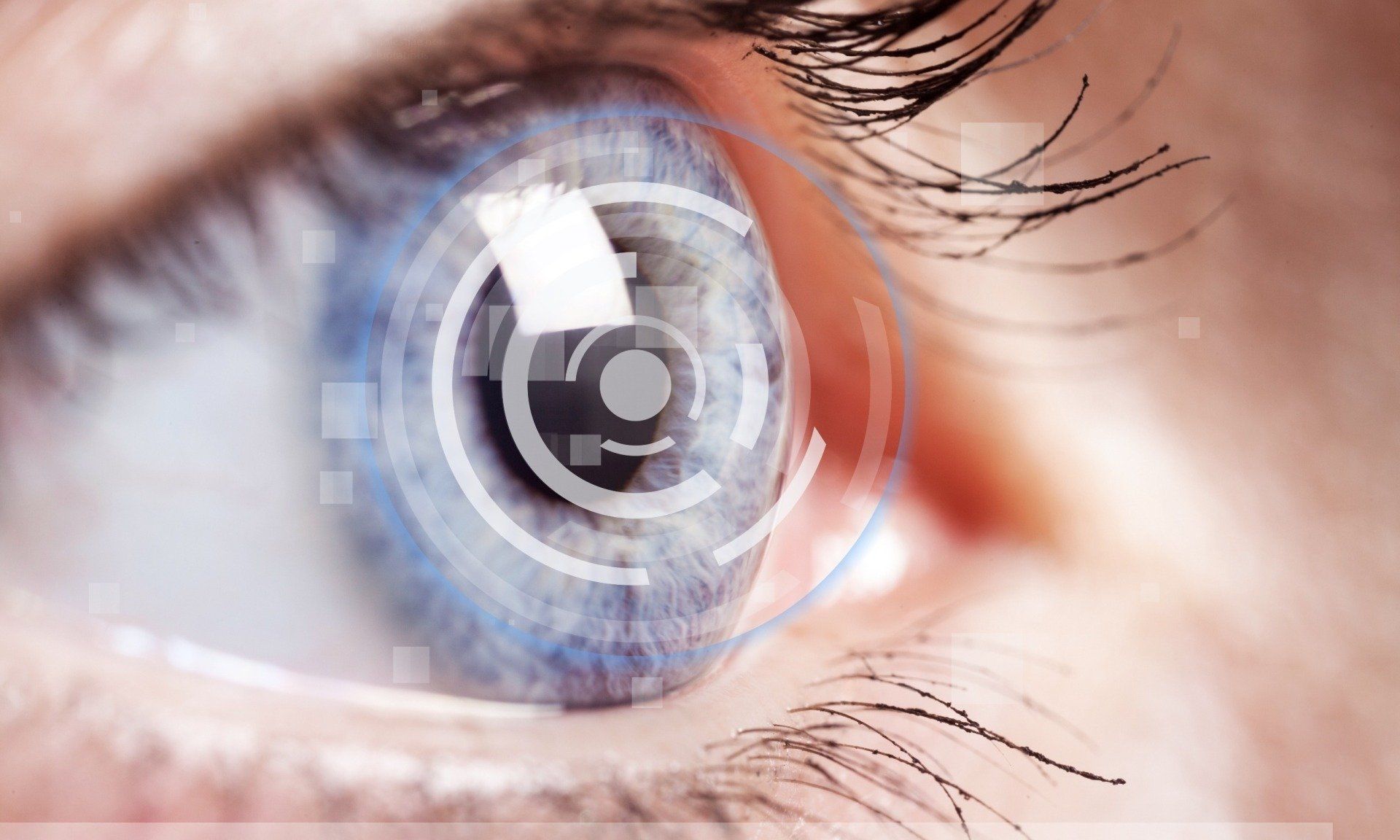When Should I Worry About Eye Floaters?
When Should I Worry About Eye Floaters?
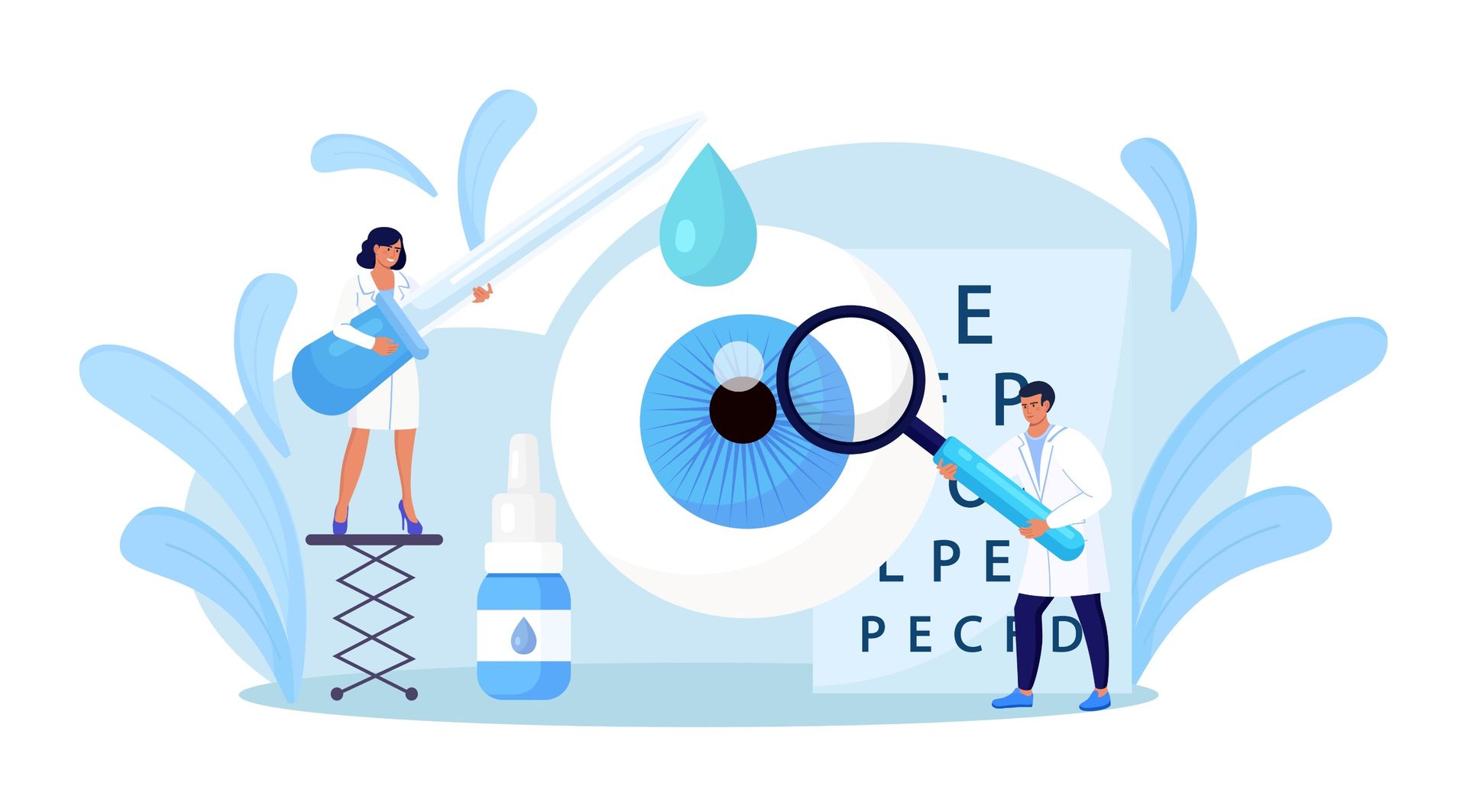
The human eye is made up of a variety of structures that work together to give us the miracle of sight. A majority of those structures – the lens, retina, pupil, iris, and optical nerve – are widely understood, there are two structures that don’t get the attention they deserve – the aqueous humor and vitreous humor.
The aqueous humor is a transparent, water-like fluid located in the front of the eye that helps provide the eye with various nutrients. On the other hand, the vitreous humor – which we’ll be talking about today – is a transparent, gel-like fluid located in the back of the eye – more specifically, between the lens and retina.
While the vitreous humor is mostly made up of water – roughly 99% – the other 1% is made up of various proteins, collagen, salts (electrolytes), and sugars (glycosaminoglycan). The vitreous humor serves two primary responsibilities – maintaining the eye’s round shape and protecting the retina and its nerve endings.
What Are Floaters?
Many of you might be wondering what eye floaters are and what they have to do with the vitreous humor. For starters, I’m sure most of us are aware of the natural aging process – something we all experience at some point in time. It’s what causes our skin to wrinkle, our hair to lose color, and our vision to worsen.
Eye floaters are typically a byproduct of that natural aging process and it occurs in the vitreous humor. Like we mentioned above, the vitreous humor is made up of various proteins, collagen, salts, and sugars. As we age, the collagen and proteins start to clump together as the vitreous liquifies and contracts.
The tiny clumps that appear in the vitreous are called eye floaters. They essentially disrupt the incoming light that passes through the lens and into the back of the eye (retina). As a result, the eye floaters cast shadows (tiny black specks) onto your field of vision, almost as if there’s nothing there – but there is.
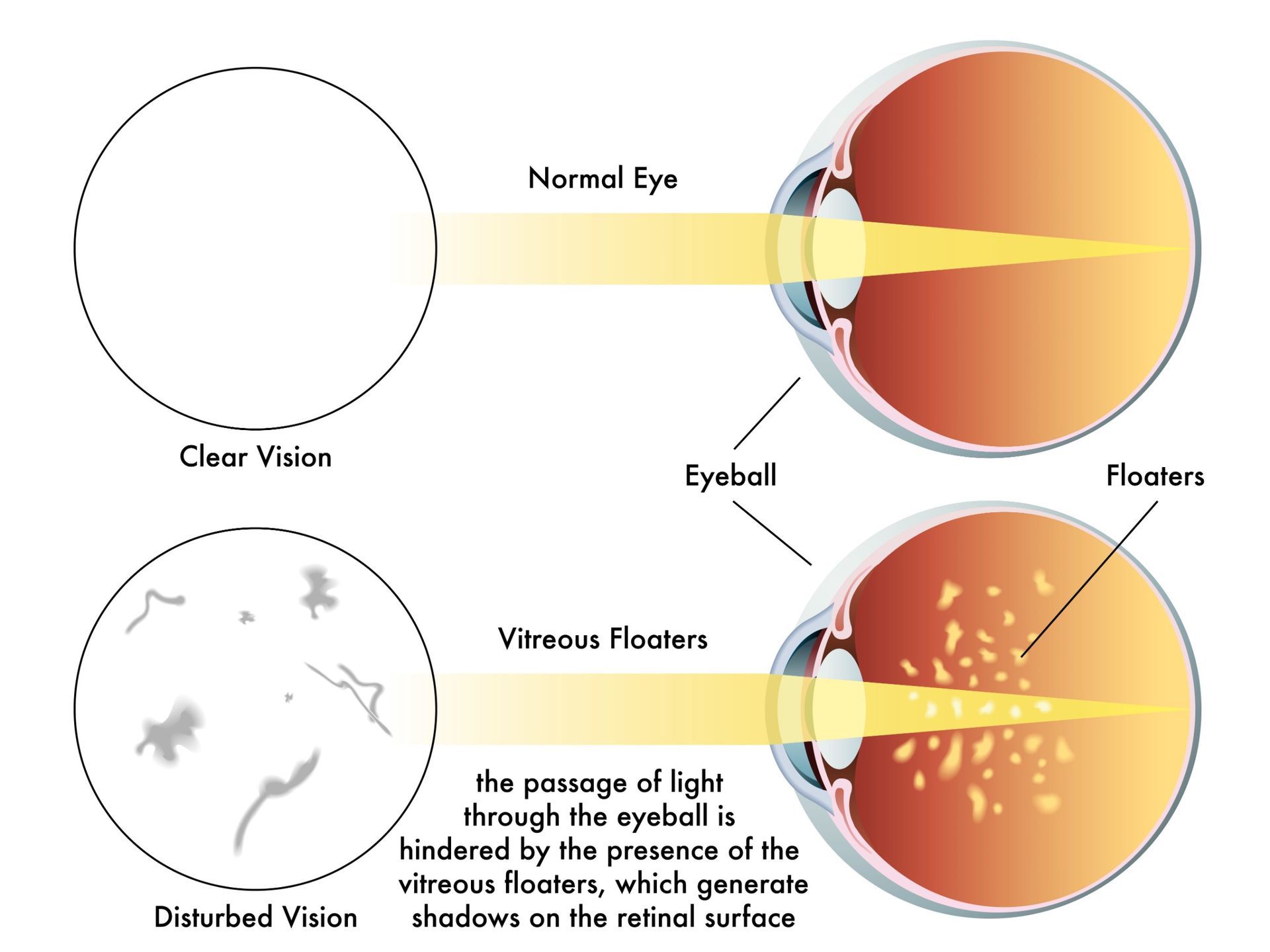
What Causes Floaters to Form?
The natural aging process, as explained above, is the primary reason why eye floaters form in the human eye, but it’s not the only reason. In fact, some causes of eye floaters are much more serious and can be a result of negligence, disease, illness, and injury – don’t worry, they can mostly be avoided and prevented.
Some of the more serious causes of eye floaters include:
- Eye infections, eye trauma, eye injuries
- Uveitis (inflammation) or bleeding of the eye
- Vitreous detachment (also called posterior vitreous detachment)
- Retinal tear (detached retina) and/or retinal detachment
- Complications during or after eye surgery
In addition to that, some people – not just elders above the age of 50 – are among those with an increased risk of developing eye floaters, including patients with myopia (also known as nearsightedness) or diabetic retinopathy. Eye trauma, retinal tears, and complications after cataract surgery might result in eye floaters.
How Do Floaters Impact Vision?
As mentioned earlier, floaters cast a shadow onto your visual field – which means you’ll see little black specks ‘floating’ across your visual field. The specks can be in the shape of black or gray dots, squiggly lines, or strings. If you notice eye floaters in your visual field, let your ophthalmologist know right away.
Floaters are generally more noticeable when looking at a blank, plain, bright background – such as a white wall/ceiling or a clear sky. Since they move as your eyes move up, down, or side-to-side, they don’t stick around for long and may resemble a tiny bug flying around your visual field – don’t worry, they’re not!
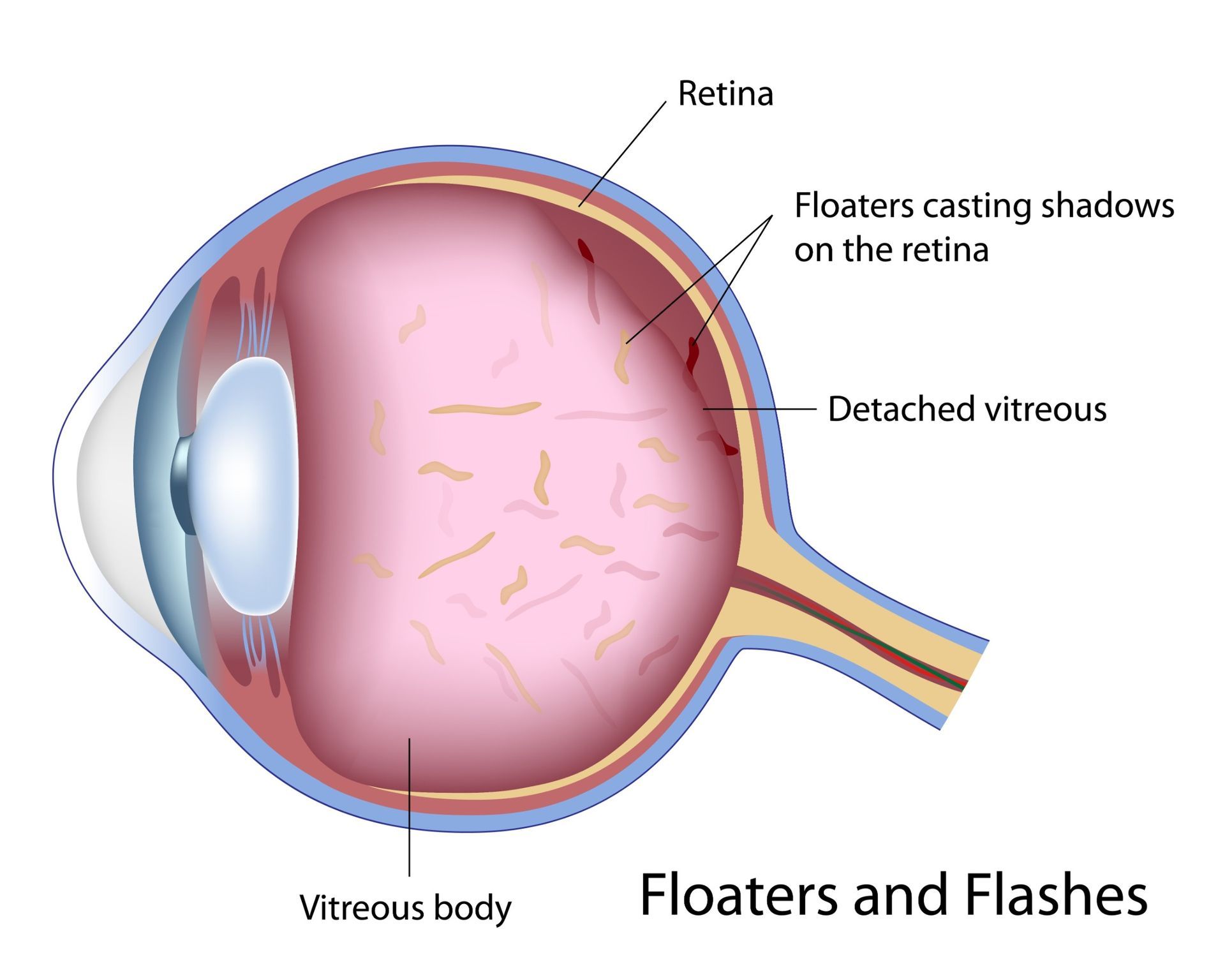
When Should I Worry About Eye Floaters?
Floaters aren’t always noticeable at first and might not have a significant impact on vision in its early stages, but that doesn’t mean they won’t worsen over time – because they will. In general, patients should start to worry about eye floaters when they appear suddenly, increase suddenly, or suddenly get worse.
Since it’s important to maintain a running dialogue with your eye doctor – that way, they can best treat you long-term and help you prevent permanent vision loss or impairment – patients should always tell their doctor right away if they experience floaters. Treatment isn’t always required right away, but it might be needed at some point.
The only time eye floaters are treated as a medical emergency is when they’re coupled with eye light flashes – which resemble camera flashes or flashes of light in your visual field. Flashes are often a warning sign of something much more serious and will likely require immediate action by you and your ophthalmologist.
Diagnosing & Treating Eye Floaters
When a patient starts to experience eye floaters, their ophthalmologist will perform a comprehensive eye exam to take a more in-depth look at their vitreous humor and retina. The exam generally requires your pupils to be dilated, which is achieved with eye drops. Don’t worry, the exam is quick and painless.
While most eye doctors won’t recommend treatment for eye floaters right away, it will eventually become a worthy option when the floaters start to impede the patients’ ability to see clearly and live a quality life. If the eye floaters are a result of an underlying disease or condition, they’ll treat that disease or condition.
The two primary treatment options for eye floaters are surgery or laser treatment. With surgery, the vitreous humor is replaced with a new jelly-like substance that functions in a similar way. With laser treatment, the ophthalmologist uses a laser to break up the tiny clumps – making them less noticeable.
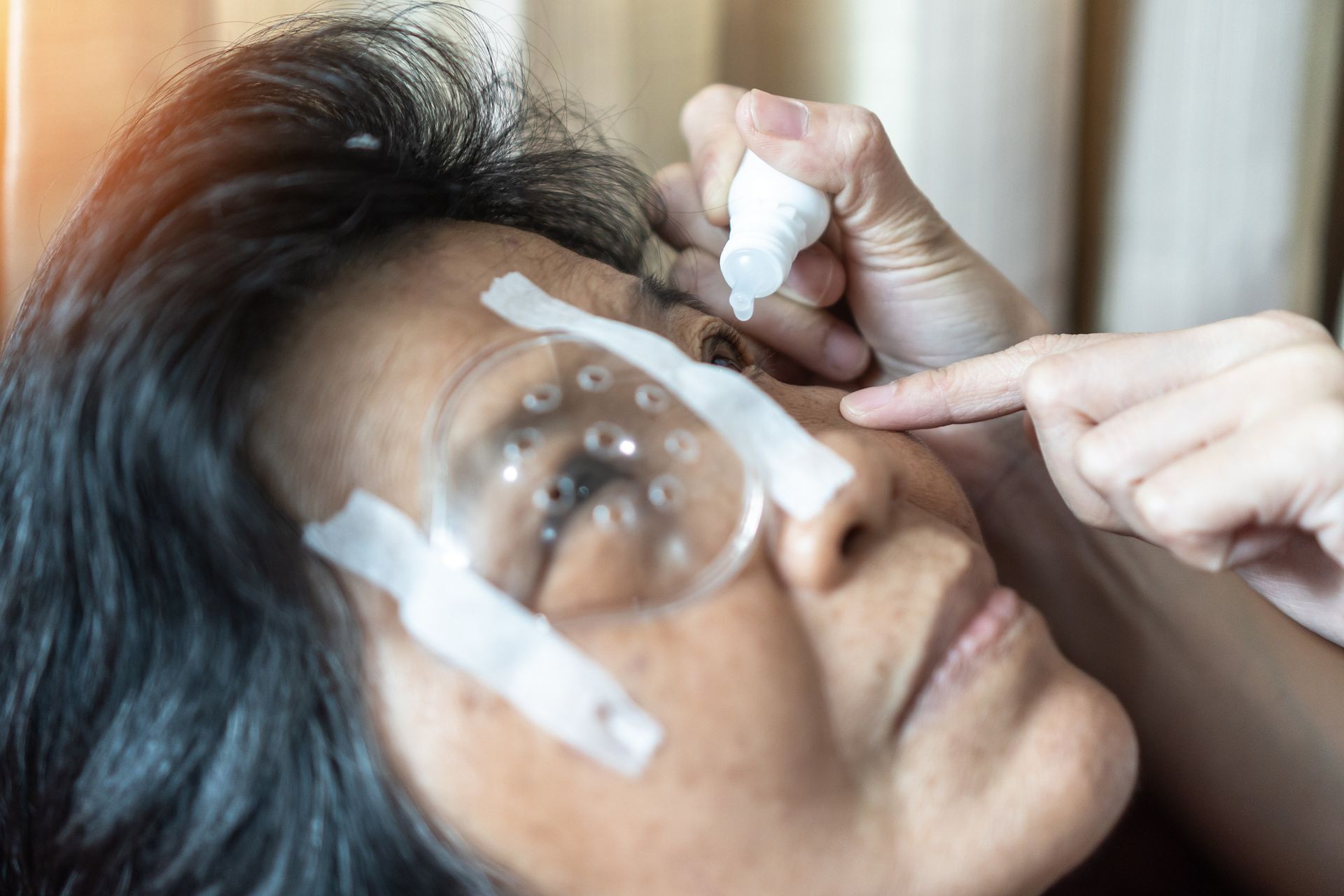
Contact Holly Springs Eye & Laser Today!
Floaters aren’t always a medical emergency and don't always require treatment, but they can certainly impact your ability to see clearly – which can have an impact on your ability to live a quality life. If you’re interested in preventing eye floaters from worsening or treating them to make them less noticeable, then contact your eye doctor immediately.
Holly Springs Eye & Laser specializes in diagnosing, treating, and preventing eye floaters from taking over your life. To schedule an appointment with Dr. Faraaz Khan and take the next step in improving eye health, please call or text Holly Springs Eye & Laser at 919-689-8920, email us at hello@hollyspringseyeandlaser.com, or fill out our online form.






